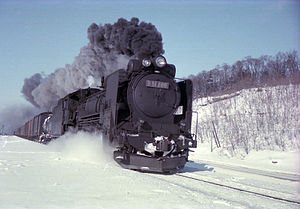A recent report states that by 2040 in Japan 40% of households will have only one occupant.
Ashi Shimbun - 40% of housholds will have one occupant
You may have seen stories or YouTube videos that tell the story of most of the mountain villages near where many of the tenkara stories take place are becoming ghost towns. Dropping populations and all the residents are over 65 years old. The young leave for the cities to find work or for other reasons.
By chance a few days before seeing the above report I discovered a YouTube channel - Grandma’s Recipes. They have uploaded ten different videos over the past 2 years. In the video descriptions their stated purpose is:
“Our team especially tries to focus on eccentric, lovely but “Rock” ladies above the age of 80, who have lived through World War Two. We interview them with great care, and through their recipes which represents the relationships they share with those they care about, we are able to uncover great depth in their life stories. We want to spread those stories to the young generations living today. We believe that if we can share the stories of those beautiful and loving ladies to the world, regardless of borders and languages, people may appreciate even the dinner table just a little bit more.”
I think most people recall a favorite recipe from their grandmothers that helps to remember them.
For me that recipe is Old English Jam Cake. I grew up living with my grandmother during school months. She didn’t have much money, but had nine children. Each December for two weeks the smell of O.E. Jam Cakes being baked as Christmas gifts filled the house. Today O.E. Jam Cake remains my annual treat. ![]()
Below are 2 of those videos. The first one I chose because it is from Itoshiro, a place many have heard of because of the annual Itoshiro Fishing Festival. Perhaps a little insight into the culture of Itoshiro. The second video, well, I’m not sure what they are cooking, but it looks tasty. And she looks a little bit like my own grandmother, as much as a Japanese woman could resemble a Caucasian woman of Welsh descent, except my grandmother was a fairly tall woman, about 5’10". The videos each have English subtitles, but often they are difficult to read.
Grandma’s Recipes|さえこおばあちゃんのおせち (Saeko Grandma’s New Year)
“Nishin(herring)- sushi” made by Mrs. Itoshiro in Itoshiro, where people have lived with faith from old times, with a population of 270. (Mrs. Itoshiro’s names seems to also be Saeko-san)
Grandma’s Recipes|たつこおばあちゃんのおせち (Tatsuko Grandma’s New Year)
There are many grandmas over the age of 80, who have collected many ““wrinkles”” of joy throughout the years. We collect these ““wrinkles”” in the form of their favorite recipes, and we try to understand the depth of their life stories.
Maybe of interest if you like learning about other cultures and the traditions of the past. And why not? Some of the new ones fall short of the ones from the past.
Clearly not directly connected to tenkara, However, many of them are from places where tenkara was probably a well known profession.



